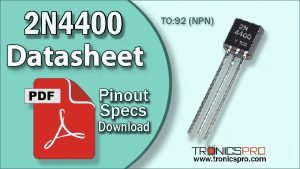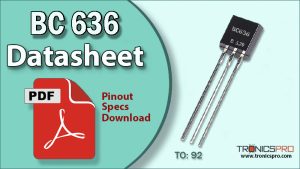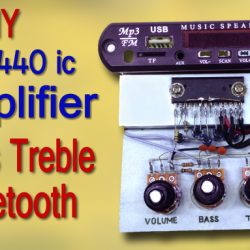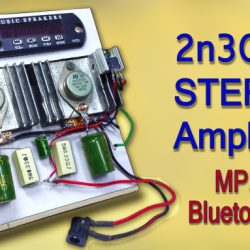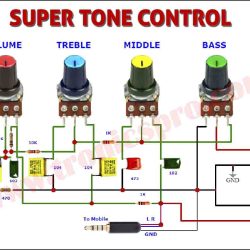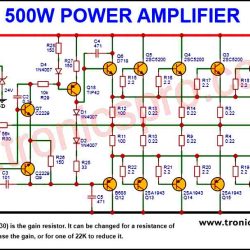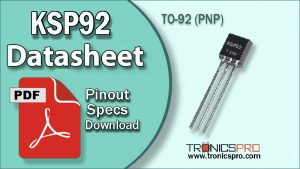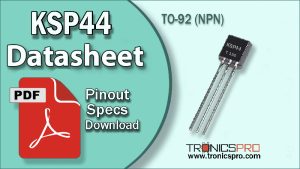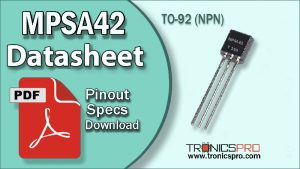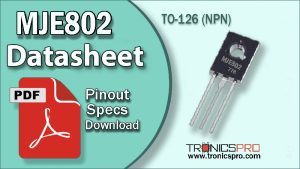The MJE15030 pinout defines the terminal configuration of this powerful NPN silicon transistor housed in a TO-220 package. Designed for audio power amplifiers, switching circuits, and industrial control systems, the MJE15030 offers high voltage, current capacity, and exceptional linearity. It pairs perfectly with its PNP complementary transistor MJE15031 in push-pull configurations for high-performance amplifier stages.

Introduction to MJE15030 NPN Transistor
The MJE15030 is a high-voltage NPN power transistor developed for both linear and switching applications. It operates with a collector-emitter voltage (Vce) of 150V, a collector-base voltage (Vcb) of 150V, and can handle up to 8A of collector current. With a power dissipation of 50W, it provides a robust solution for circuits that require efficient heat management and reliable performance.
Engineered for audio amplification and power regulation, this transistor features a high transition frequency and fast switching capability, making it suitable for both AC and DC power stages. Its strong gain stability and low saturation voltage ensure consistent performance under demanding operating conditions.
Datasheet Download Button is provided end of this article.
MJE15030 NPN Transistor
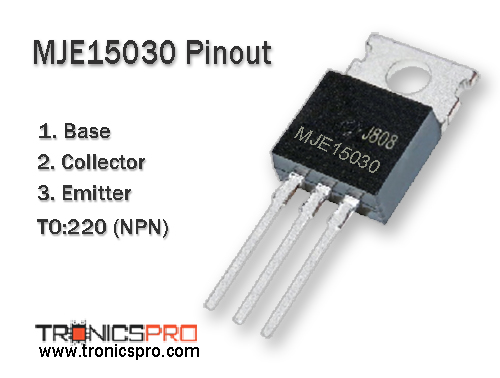
Pinout of MJE15030
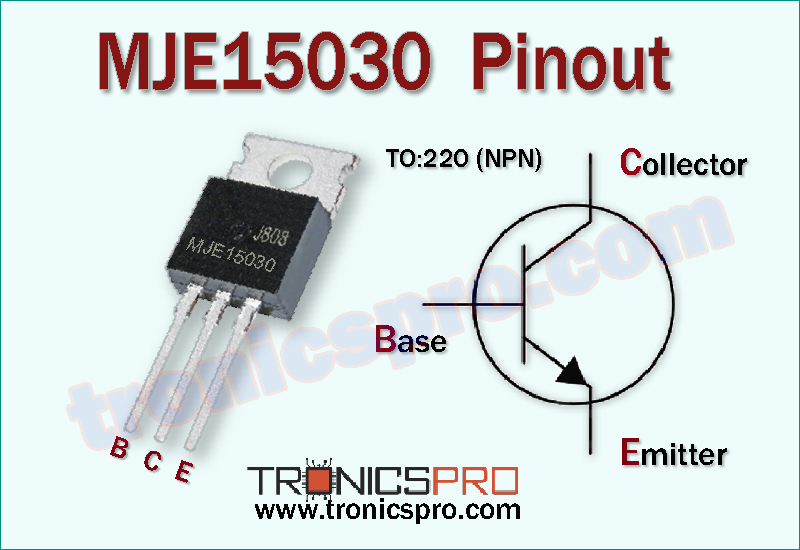
Understanding the MJE15030 Pinout Configuration
The MJE15030 pinout follows a Base-Collector-Emitter (B-C-E) sequence when viewed from the front (flat side facing forward, leads downward). This configuration ensures compatibility with most TO-220-based amplifier and power board layouts.
Pin Configuration of MJE15030 Pinout
| Pin# | Pin Name |
|---|---|
| 1 | Base |
| 2 | Collector |
| 3 | Emitter |
Key Features of MJE15030 Transistor
- High collector-emitter and collector-base voltage ratings
- Excellent gain stability over temperature
- High transition frequency for fast switching
- Ideal for high-power audio amplifiers
- TO-220 package with efficient heat dissipation
- Complementary with MJE15031 (PNP)
- Low distortion in linear amplifier operation
MJE15030 Transistor Datasheet and Specifications
- Collector-Emitter Voltage (Vce): 150V
- Collector-Base Voltage (Vcb): 150V
- Emitter-Base Voltage (Veb): 5V
- Collector Current (Ic): 8A
- Power Dissipation (Pc): 50W
- DC Current Gain (hFE): 30 to 160
- Transition Frequency (fT): 30 MHz
- Package Type: TO-220
- Pin Configuration: Base-Collector-Emitter (B-C-E)
- Complementary Pair: MJE15031 (PNP)
Working Principle of MJE15030 NPN Transistor
The MJE15030 operates as a current-controlled amplifier or switch. When a small current flows into the base, it controls a larger current between the collector and emitter. In amplifier applications, it amplifies voltage or power, while in switching circuits, it acts as a rapid electronic switch.
When paired with its PNP complement MJE15031, both form a push-pull Class AB amplifier, where each handles opposite halves of the waveform — ensuring low distortion and balanced output for professional-grade audio systems.
More Circuit Layouts
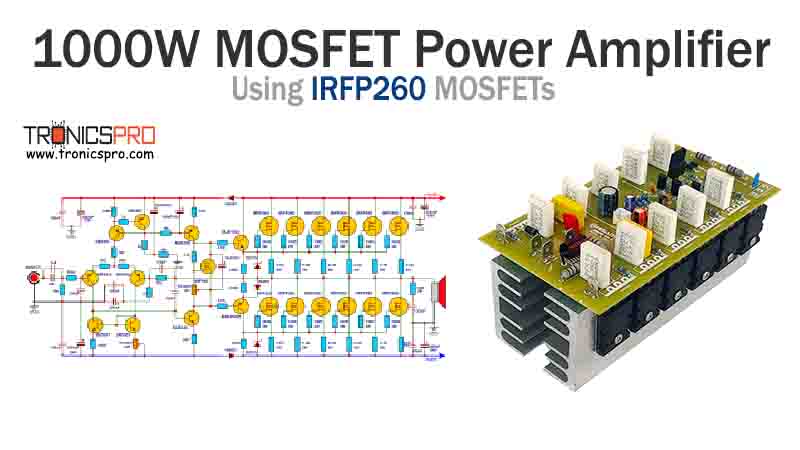
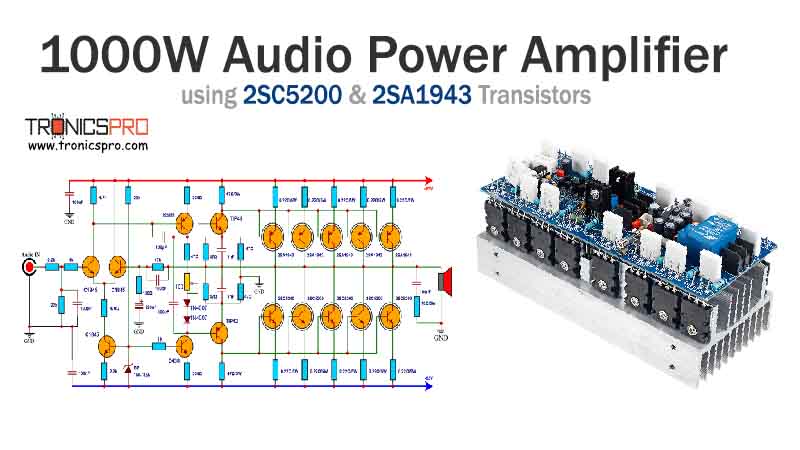
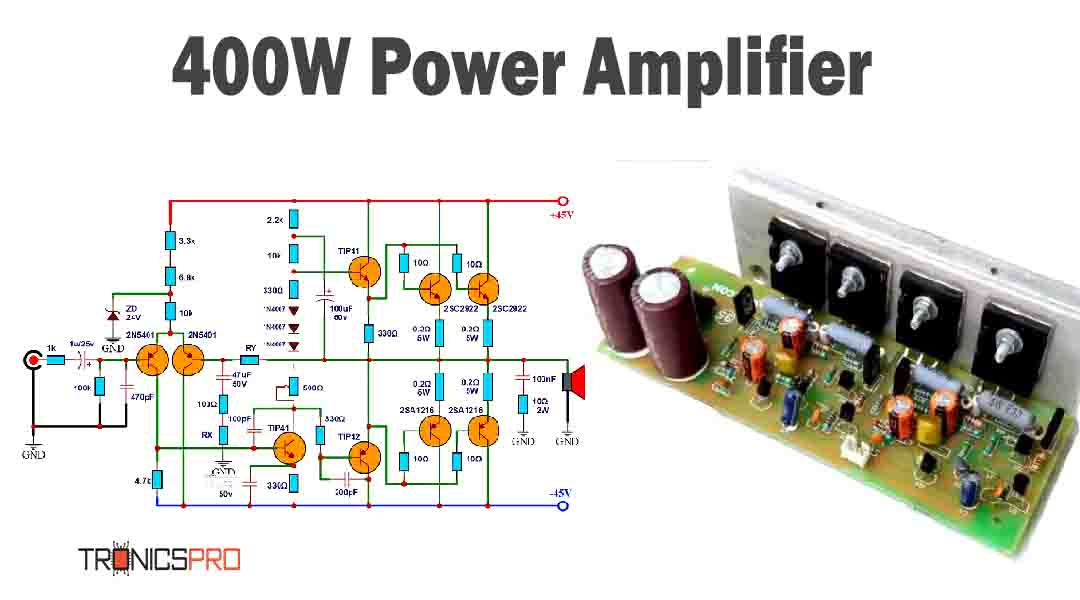
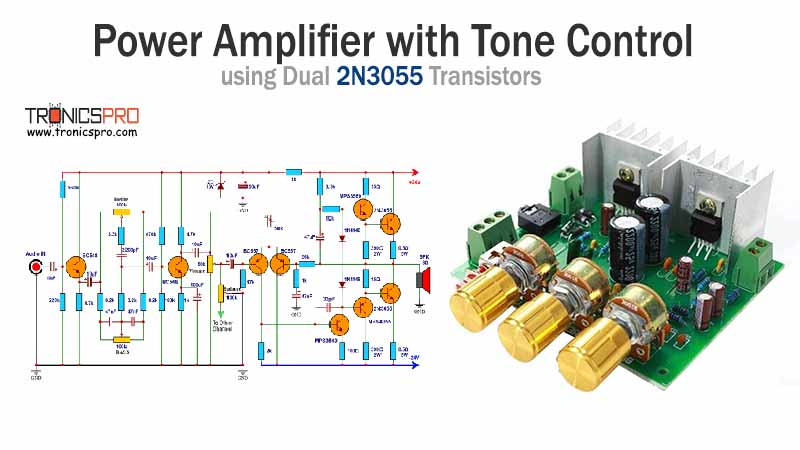
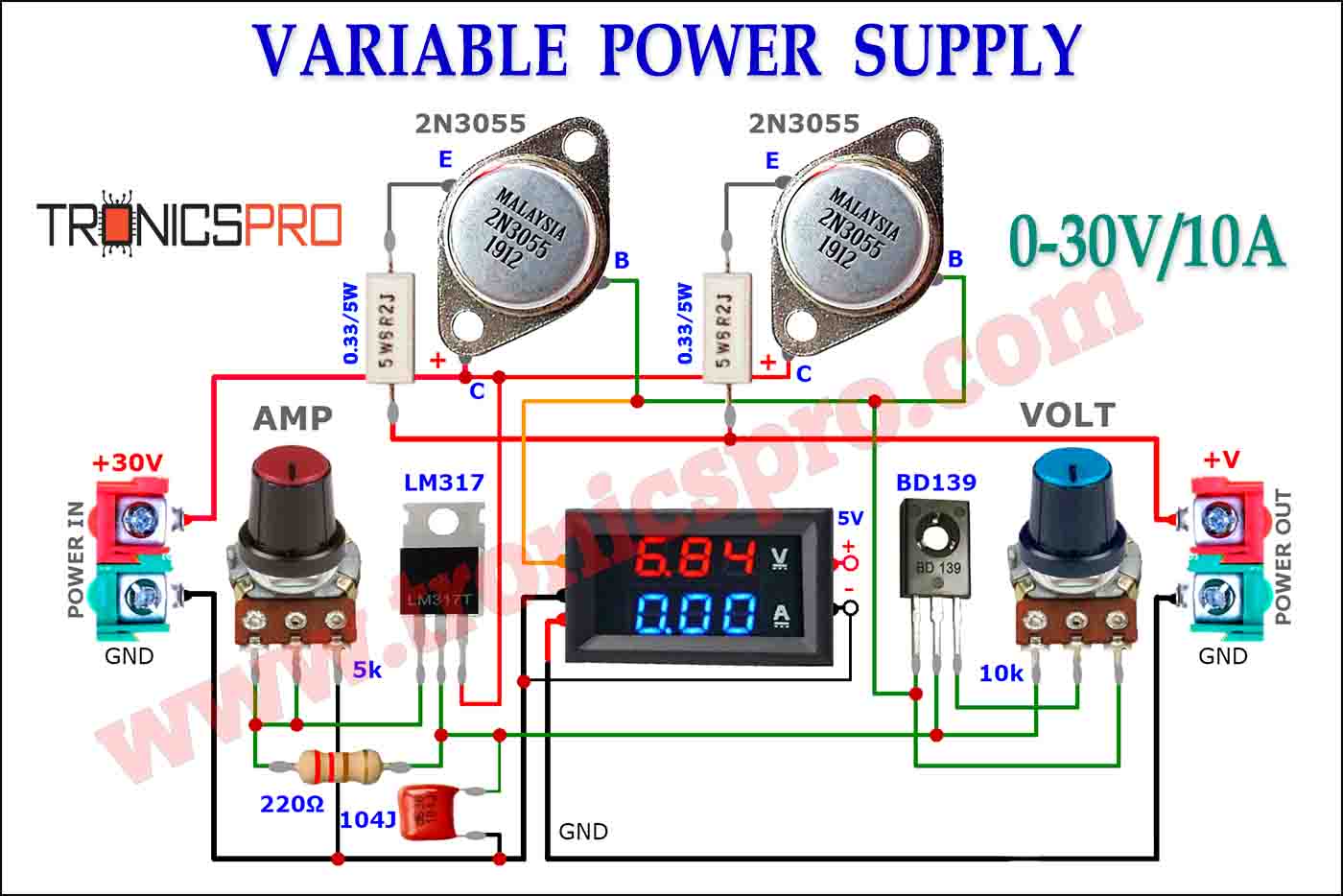
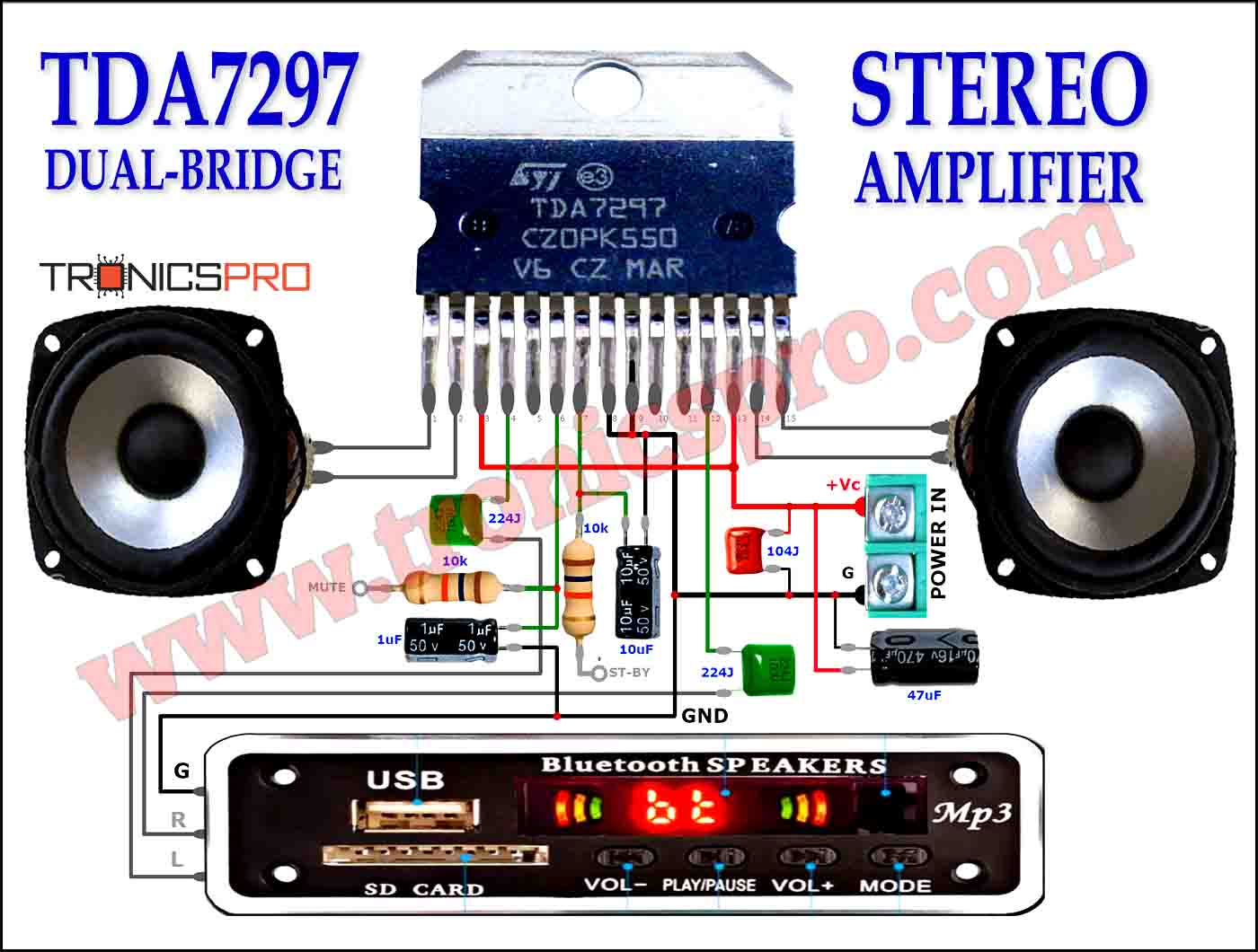
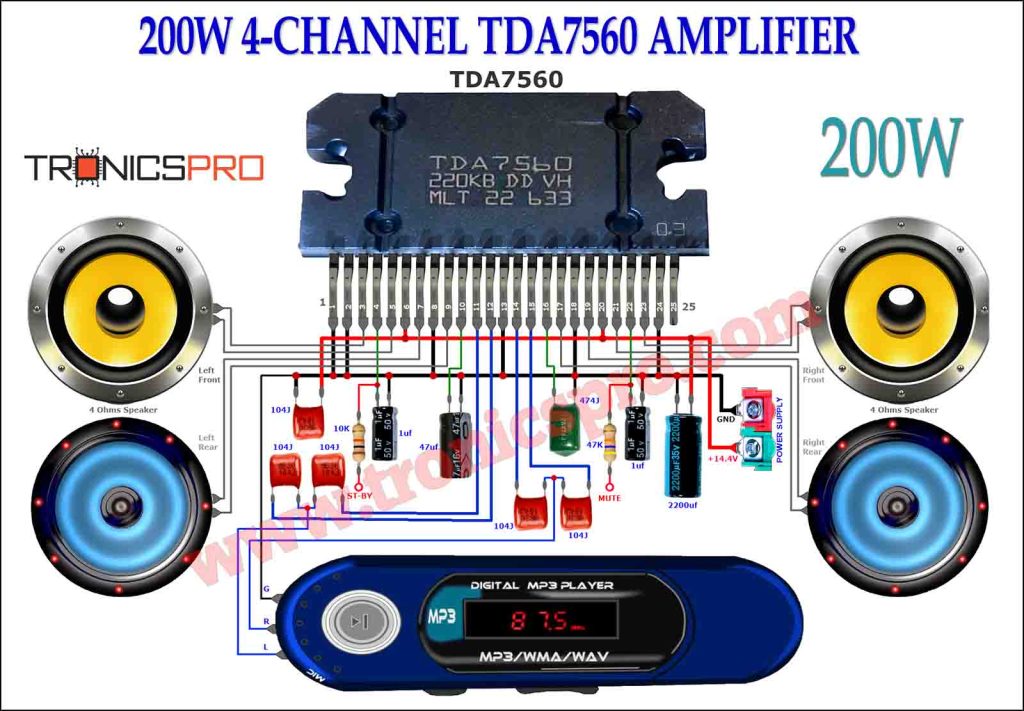
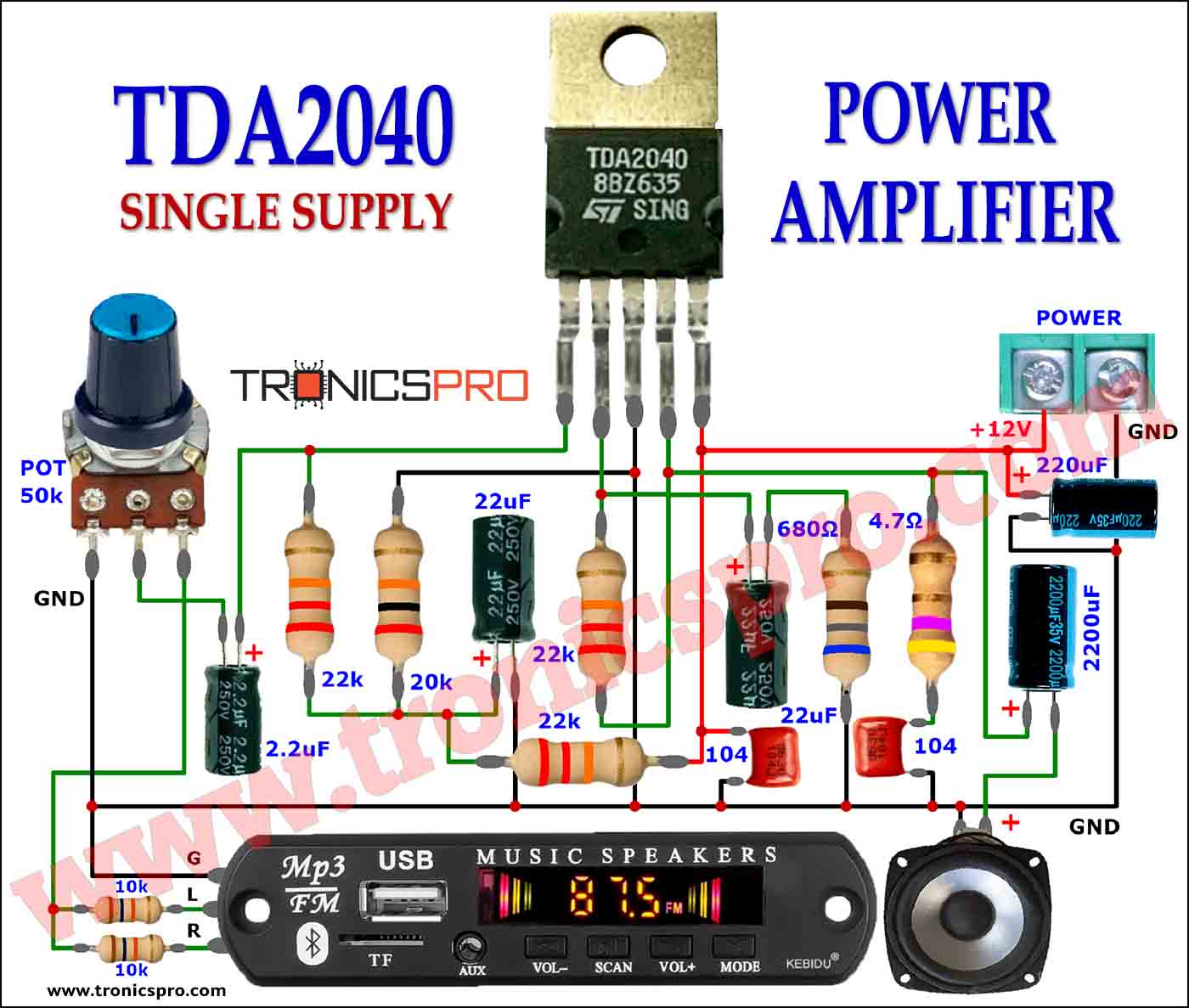
Typical Applications of MJE15030
- High-fidelity audio amplifier output stages
- Power inverters and motor drivers
- Switching power supplies and regulators
- Class AB push-pull amplifiers
- Industrial automation circuits
- DC-AC converter systems
PNP Complementary Transistor
The PNP complementary transistor for the MJE15030 is MJE15031. Together, these form a matched pair commonly used in high-power Class AB amplifier designs. While the MJE15030 amplifies or switches positive cycles, the MJE15031 handles negative cycles, creating full-swing output signals with excellent linearity.
Equivalent Transistors and Alternatives
- MJE15032 (NPN, higher voltage successor)
- BD243C (lower-cost equivalent)
- TIP41C (medium-power substitute)
- 2SC5200 (high-performance audio replacement)
- MJL3281A (TO-264 package, high-power version)
Comparison Summary: MJE15030 vs MJE15031
The MJE15030 (NPN) and MJE15031 (PNP) are complementary transistors with identical ratings of 150V, 8A, and 50W. The key difference lies in polarity—MJE15030 conducts during the positive half-cycle, while MJE15031 manages the negative half.
When paired in push-pull Class AB configurations, they deliver high output power, low harmonic distortion, and excellent thermal performance, making them a trusted combination in professional amplifier designs.
Frequently Asked Questions (FAQ)
What is the MJE15030 transistor used for?
It’s used in audio amplifiers, inverters, and switching regulators requiring high voltage and current handling.
What type of transistor is MJE15030?
It is an NPN silicon power transistor designed for linear and switching applications.
What is the MJE15030 pinout configuration?
The pinout is Base-Collector-Emitter (B-C-E) when facing the front side.
What is the complementary transistor for MJE15030?
The complementary transistor is MJE15031, a PNP type with identical characteristics.
Can I use MJE15032 instead of MJE15030?
Yes, the MJE15032 can be used as a higher voltage alternative with improved performance margins.
Conclusion
The MJE15030 transistor is a high-power NPN device ideal for audio amplifiers and industrial switching circuits. With 150V voltage tolerance and 8A current capacity, it provides stability and efficiency in demanding environments.
When combined with MJE15031, it forms a complementary pair that ensures clear sound reproduction, low distortion, and thermal reliability, making it a top choice among amplifier designers and power engineers.
Datasheet of MJE15030 NPN Transistor
Click the following Button to download the datasheet of MJE15030 Transistor :
More projects, You may like:
- Video Transmitter DIY Homemade FM Radio Transmitter
- Adjustable Power Supply DIY Battery Charger
- 12V-220V 500 Watt inverter DIY Homemade
- MPPT Solar Charge Controller DIY Homemade
- DIY LA4440 bass amplifier homemade
For more project and circuit diagrams, you can go through the Schematics in the main menu where you can find many interesting projects and circuit diagrams like audio amplifier circuits, voltage booster circuit, battery charger circuit and timer circuits etc., which are all beginner circuit projects. Feel free to check them out!

Thank you for visiting the article.







